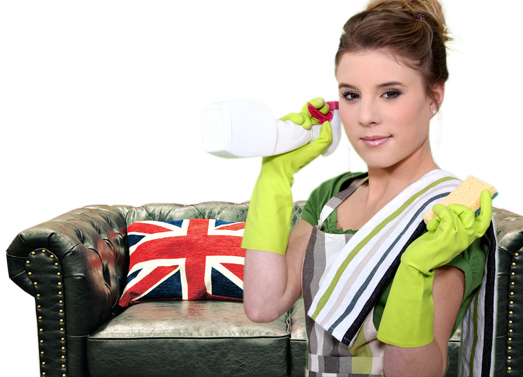Get a Cleaner Home by Tackling Pet Odors
Posted on 14/08/2025
Get a Cleaner Home by Tackling Pet Odors
Pet lovers know that having a furry companion enriches the home with love and joy. However, it can also mean dealing with persistent pet odors that affect the freshness of your living spaces. If you're searching for effective ways to remove pet smells and maintain a clean home, you're in the right place! This comprehensive guide is packed with expert advice on how to get a cleaner home by tackling pet odors head-on.
Why Tackling Pet Odors Matters for a Clean Home
Nothing undermines the comfort of your home more than lingering pet smells. Unpleasant odors can create an unhealthy environment, impact indoor air quality, and even influence the opinions of visitors. In addition to hygiene, eliminating pet odors is fundamental to maintaining a welcoming and well-kept residence.
Common Sources of Pet Odors
- Pet urine: One of the most stubborn and challenging odors to remove, especially from carpets and upholstery.
- Wet fur: Especially noticeable after dogs come in from the rain or after a bath.
- Litter boxes: Even with daily scooping, cat litter can be a culprit of persistent smells.
- Pet beds and blankets: These often harbor deep-seated odors from frequent use.
- Saliva and dander: Both can contribute to long-lasting smells, especially in poorly ventilated rooms.

Prevention: The Key to Odor-Free Living Spaces
The best approach to getting a cleaner home and combating pet odors is through prevention. Here are some effective tips to stop smells before they start:
Establish a Cleaning Routine
Frequent and consistent cleaning is vital. Daily habits can make a world of difference in preventing odor buildup. Try these preventative measures:
- Vacuum regularly to reduce fur and dander. Use a vacuum with a HEPA filter for best results.
- Wash pet bedding weekly in hot water with mild detergent.
- Place absorbent mats at entryways and in litter areas for easier clean-up and less spread.
- Groom pets routinely to minimize shedding and reduce the natural oils that can create smells.
- Keep your home well-ventilated to remove airborne particles and freshen up the air.
How to Remove Existing Pet Odors from Your Home
Once odors have taken root, it's important to use the right techniques to eliminate them fully. Here's a step-by-step approach to effectively get rid of persistent pet odors and achieve a cleaner, fresher home:
1. Deep Clean Carpets and Rugs
Carpets are magnets for pet hair, dander, and especially urine. These fibers trap odors, and simple vacuuming isn't always enough. Follow these steps:
- Use a high-quality carpet cleaner with enzymatic solutions specifically designed for pet stains and odors.
- Saturate soiled areas completely and allow the solution to work for at least 15 minutes before extraction or blotting.
- Rent a steam cleaner for a thorough, deep clean if necessary.
- Repeat cleaning on stubborn areas, allowing the carpet to dry between attempts.
Tip: Baking soda sprinkled on carpets can help absorb minor odors--vacuum after letting it sit overnight.
2. Refresh Upholstery and Soft Furnishings
Sofas, curtains, and even throw pillows can hold onto pet smells. To get a cleaner home by tackling odors in these areas:
- Check the manufacturer's cleaning instructions before applying any product.
- Sprinkle baking soda on upholstered surfaces and let it sit for several hours before vacuuming.
- Use a portable upholstery steam cleaner or arrange professional cleaning for deep-set odors.
- Wash removable covers in hot water with a pet-safe detergent.
3. Address Hard Surfaces
Don't neglect floors, walls, and baseboards. Pet odors can linger in surprising places, especially if soiling has occurred. Try these steps:
- Wipe down hard floors, tiles, and walls with a solution of water and white vinegar for natural odor elimination.
- Use enzymatic cleaners on any urine or accident zones.
- Polish with a fresh-smelling, non-toxic floor cleaner that's safe for pets.
4. Tackle Pet Bedding and Litter Boxes
Since these are hotspots for unwanted smells, cleaning them correctly is vital:
- Wash pet bedding, blankets, and soft toys weekly.
- Disinfect hard pet beds and crates using a pet-safe antibacterial solution.
- Change litter frequently and scoop daily to minimize odors.
- Consider odor-neutralizing cat litters and add baking soda to the box for extra freshness.
Natural Remedies to Remove Pet Odors
If you prefer chemical-free solutions for cleaner indoor air, consider these natural remedies for pet odor removal:
Baking Soda
Baking soda is a powerful, safe deodorizer that absorbs smells wherever it's used. Sprinkle it on carpets, furniture, or in litter boxes to neutralize odors before vacuuming or cleaning.
White Vinegar
The acidity in vinegar helps break down the molecules causing odors. It also acts as a mild disinfectant. Mix equal parts white vinegar and water to wipe down hard surfaces or use as a fabric spray (after spot testing).
Lemon and Citrus
Lemon juice offers a natural fresh scent while breaking down odor-causing bacteria. Add a few tablespoons of fresh lemon juice to cleaning water for mopping or spritzing on faded-smelling areas.
Activated Charcoal
Activated charcoal filters and absorbs odors from the air. Place bowls of charcoal in rooms where pet smells are persistent, or use charcoal-filled sachets inside shoes, drawers, or closets.
Air Quality: The Final Step to a Fresher Home
After tackling your home's surfaces, improving indoor air quality is the last step to a truly clean, odor-free environment. Here's how to enhance freshness throughout your home:
- Open windows daily to facilitate air exchange and let in fresh air whenever possible.
- Use air purifiers with HEPA filters to capture dander and allergens released by pets.
- Consider dehumidifiers to prevent the growth of mold and mildew which can exacerbate odors.
- Add natural houseplants (like spider plants and ferns) that absorb toxins and purify the air.
How Pet Grooming Reduces Home Odors
Proper grooming isn't just about keeping your pet looking good. It directly impacts how clean and fresh your home smells. Here are some vital pet care habits to adopt:
- Bathe pets regularly according to their breed and coat needs.
- Brush fur frequently to minimise shedding and distribute natural oils.
- Clean ears and paws, which can harbor bacteria responsible for foul odors.
- Examine teeth--bad breath in dogs and cats can contribute to unpleasant indoor smells. Regular dental care is crucial.
Choosing the Right Cleaning Products for Pet Odor Removal
Not all cleaning products are safe for homes with animals. While you want effectiveness, you also need to prioritize your pet's health. When shopping for supplies to remove pet odors:
- Opt for enzyme-based cleaners labeled pet-safe; they target organic odors at the molecular level.
- Avoid products containing ammonia, which can mimic the smell of urine and encourage repeat accidents.
- Choose fragrance-free or naturally fragranced sprays to avoid overwhelming scents, which might bother sensitive pets.
- Always keep cleaning solutions out of pets' reach, and rinse all surfaces they may contact after cleaning.
DIY Pet Odor Removal Solutions
If you prefer a more hands-on approach, homemade pet odor removers are both effective and economical. Here are two recipes to try:
- Baking Soda Carpet Deodorizer:
- Mix 1 cup baking soda with a few drops of your favorite pet-safe essential oil (like lavender or lemon).
- Sprinkle onto carpet, let sit overnight, then vacuum thoroughly.
- Citrus-Vinegar Surface Spray:
- Combine 1 part white vinegar, 2 parts water, and the juice of one lemon in a spray bottle.
- Spray onto hard surfaces and wipe clean for a fresh-smelling finish.
Addressing Pet Accidents Quickly and Efficiently
Even with great training, accidents happen. The key to ensuring your home stays clean and odor-free is to act fast:
- Blot up liquid accidents immediately with paper towels or a clean cloth--never rub, as that pushes the mess deeper.
- Apply enzyme cleaner as soon as possible to the affected area and let it work as directed.
- If on hard surfaces, follow up with a vinegar solution to disinfect and freshen.
- Rinse and dry surfaces thoroughly before allowing pets back into the area.
Tips for Long-Term Pet Odor Control and a Cleaner Home
For a consistently clean, odor-free home with pets, combine all these strategies with these long-term habits:
- Replace old carpets, rugs, or upholstery that harbor permanent odors.
- Regularly clean air vents and ducts to prevent dander and hair buildup.
- Set up "pet zones"--areas that are easier to keep clean, with washable flooring and covers.
- Seek professional cleaning every few months for stubborn smells or heavy-use areas.

Frequently Asked Questions About Pet Odors and Home Cleaning
Can pet odors impact my health?
Yes, pet odors often carry bacteria, allergens, and toxins that can trigger respiratory problems and allergies. Ensuring cleanliness helps maintain indoor air quality for you and your pets.
What if I can't get rid of a stubborn smell?
Some odors, like deep-set urine stains, may require professional intervention. If repeated cleanings fail, contact a specialty cleaning service for advice and restoration.
Are air fresheners a good solution for pet odors?
Air fresheners mask rather than eliminate the cause of odors. For safer, longer-lasting results, focus on cleaning and odor neutralization instead.
Conclusion: Enjoy a Cleaner, Fresher Home with Your Pets
Maintaining a clean home with pets may seem challenging, but it's entirely possible with the right routine, products, and preventative care. By tackling pet odors at their source, deep cleaning regularly, and adopting pet-friendly habits, you'll foster an environment that's as delightful for your two-legged guests as it is for your four-legged friends.




